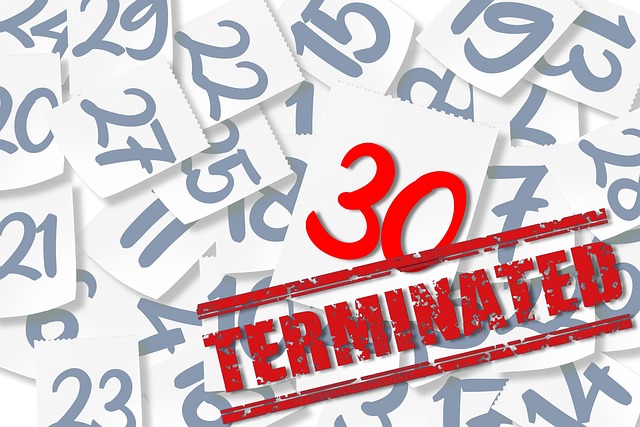UK Historical Documents Translation Services are vital for unlocking and sharing our collective past. They overcome language barriers, making archaic documents accessible to a global audience through expert translation, digital archiving, and advanced technology. These services democratize historical knowledge, empowering diverse interpretations, in-depth research, and cross-cultural understanding. By preserving original context and integrity, they ensure accurate representation of history for modern audiences. With ongoing innovation, these services aim to reach diverse communities, making UK historical documents truly accessible and engaging for all.
In today’s digital age, making historical content accessible is paramount for enriching education and research. The UK abounds with invaluable documents that tell our collective story, yet many remain inaccessible due to language barriers and outdated formats. This article explores how UK Historical Documents Translation Services can break down these walls. From overcoming linguistic challenges to modernizing digital access, we delve into successful projects, highlighting the essential role of professional translators in ensuring accuracy and making history truly come alive for all.
- The Value of Historical Content in Education and Research
- Barriers to Accessibility: Language and Format
- UK Historical Documents Translation Services: A Solution
- Professional Translators: Experts in Capturing Nuance
- Ensuring Accuracy in Historical Translation
- Digital Access: Modernizing Historical Archives
- Case Studies: Successful Accessibility Projects
- Future Steps: Expanding Accessibility for All
The Value of Historical Content in Education and Research

Historical content is a powerful tool in education and research, offering insights into our past that shape our present and future. UK historical documents translation services play a vital role in making this knowledge accessible to a broader audience. By breaking down language barriers, these services ensure that students, scholars, and enthusiasts worldwide can explore and understand primary sources from various periods and cultures.
This accessibility is particularly significant in academic settings, where researchers rely on historical documents for their studies. Translating these documents not only facilitates research but also enriches educational experiences. It allows historians, for instance, to teach about diverse civilizations and events, fostering a more comprehensive understanding of global history. Moreover, it empowers individuals from different linguistic backgrounds to contribute to the field, promoting inclusivity and diverse perspectives in historical interpretation.
Barriers to Accessibility: Language and Format

Many historical documents in the UK are written in archaic languages, posing a significant barrier to accessibility for modern readers. While English has evolved over time, older texts often employ vocabulary and grammatical structures that can be challenging to decipher, especially for those without a strong background in historical linguistics. This linguistic disparity ensures that vast stores of historical knowledge remain largely inaccessible to the general public.
Additionally, the format of these documents creates further obstacles. Older documents are often presented in formats that are not readily compatible with modern digital devices and software. Handwritten or typewritten texts may be scanned or photographed, resulting in low-resolution images that make text extraction and machine translation difficult. These technical challenges highlight the need for specialized services, such as UK Historical Documents Translation Services, to democratize access to this valuable historical content.
UK Historical Documents Translation Services: A Solution

In an increasingly globalized world, ensuring accessibility to historical content is more vital than ever. The UK, rich in historical documents and archives, can play a leading role in this regard through specialized translation services. UK Historical Documents Translation Services offer a solution to the challenge of preserving and sharing historical knowledge across linguistic barriers. These services are essential for translating ancient texts, official records, and cultural artifacts into modern languages, making them accessible to a broader, international audience.
By leveraging professional translators with expertise in history and linguistics, these translation services can capture not just the literal meaning but also the context, nuances, and historical significance of the documents. This meticulous approach ensures that the translated content remains faithful to the original while facilitating cross-cultural understanding and research. UK Historical Documents Translation Services thus serve as a bridge, connecting historians, scholars, and enthusiasts worldwide through the shared heritage of historical texts.
Professional Translators: Experts in Capturing Nuance

Professional translators play a vital role in enhancing accessibility to historical content, especially within the context of UK historical documents translation services. These experts possess a unique skill set that goes beyond language proficiency; they are adept at capturing and conveying subtle nuances found in ancient texts. Historical documents often contain complex terminology, idiomatic expressions, and cultural references that require a deep understanding of both the source and target languages.
By leveraging their expertise, UK historical documents translation services ensure that these valuable records remain accessible to a broader audience. This accessibility not only facilitates research and academic pursuits but also fosters a deeper connection with the past, allowing modern readers to gain insights into bygone eras and diverse cultural perspectives.
Ensuring Accuracy in Historical Translation

Ensuring accuracy in historical translation is paramount when making historic UK documents accessible to a modern audience. With nuances in language and cultural context spanning centuries, it’s crucial to engage professional translators who not only possess expertise in historical languages but also a deep understanding of the period’s unique terminological and conceptual framework.
UK Historical Documents Translation Services play a vital role in preserving the integrity of these records. These services employ linguists equipped to navigate the complexities of archaic terminology, dialect variations, and even hidden biases present in original texts. By meticulously researching historical context and consulting with experts in relevant fields, these translation services ensure that the translated content is not just word-for-word but faithful to the intended meaning and significance of the original document.
Digital Access: Modernizing Historical Archives

In today’s digital age, modernizing historical archives is more than just a trend; it’s a necessity. The UK Historical Documents Translation Services play a pivotal role in enhancing accessibility to our nation’s past. By digitizing and translating ancient texts, these services ensure that historical knowledge becomes accessible to a broader audience, breaking down language barriers and making discoveries once confined to academic shelves available to everyone. This process involves meticulous work, from scanning rare manuscripts to employing advanced machine translation tools while preserving the original context and nuances.
This technological advancement allows researchers, students, and enthusiasts alike to explore diverse historical narratives. Whether it’s 18th-century correspondence, medieval legal documents, or ancient scripts, accurate translations open doors to a rich cultural heritage that was previously difficult to engage with. Digital access democratizes history, fostering a deeper understanding of our collective past and encouraging new interpretations from varied perspectives.
Case Studies: Successful Accessibility Projects

Successful accessibility projects in the UK have transformed the way historical content is made available to a diverse range of audiences. One notable example involves the digitalisation and translation of rare historical documents held by regional archives. By employing dedicated UK Historical Documents Translation Services, these projects ensure that texts previously accessible only to experts are now accessible to students, researchers, and the general public alike. This has not only increased knowledge sharing but also fostered a deeper understanding of local and national history.
Such initiatives often involve collaborations between cultural institutions, linguists, and technology specialists. They leverage advanced translation software and machine learning algorithms to accurately interpret and translate documents written in archaic languages or with unique regional dialects. The result is a rich digital archive that preserves historical narratives while making them more inclusive and engaging for modern audiences.
Future Steps: Expanding Accessibility for All

To ensure that historical content is accessible to all, future steps should focus on expanding services offered by UK Historical Documents Translation Services. This includes increasing the availability of language support for diverse linguistic backgrounds, making digital archives searchable in multiple languages, and developing user-friendly interfaces adaptable to different accessibility needs.
By leveraging advanced machine translation technologies and employing professional translators with expertise in historical contexts, these services can bridge communication gaps. Additionally, providing options for text-to-speech functionality and adjustable font sizes will further enhance accessibility. This inclusive approach guarantees that everyone, regardless of language proficiency or physical abilities, can engage with and benefit from the UK’s rich historical documents.
By addressing the barriers to accessibility, particularly through the provision of UK Historical Documents Translation Services, we can ensure that historical content becomes a vibrant and accessible resource for all. Professional translators, with their expertise in capturing nuance and ensuring accuracy, play a pivotal role in this process. Digital access further modernizes historical archives, enabling us to delve into the past and learn from it in new and innovative ways. As we look to the future, expanding accessibility through these services is crucial to fostering a deeper understanding of our shared history.
